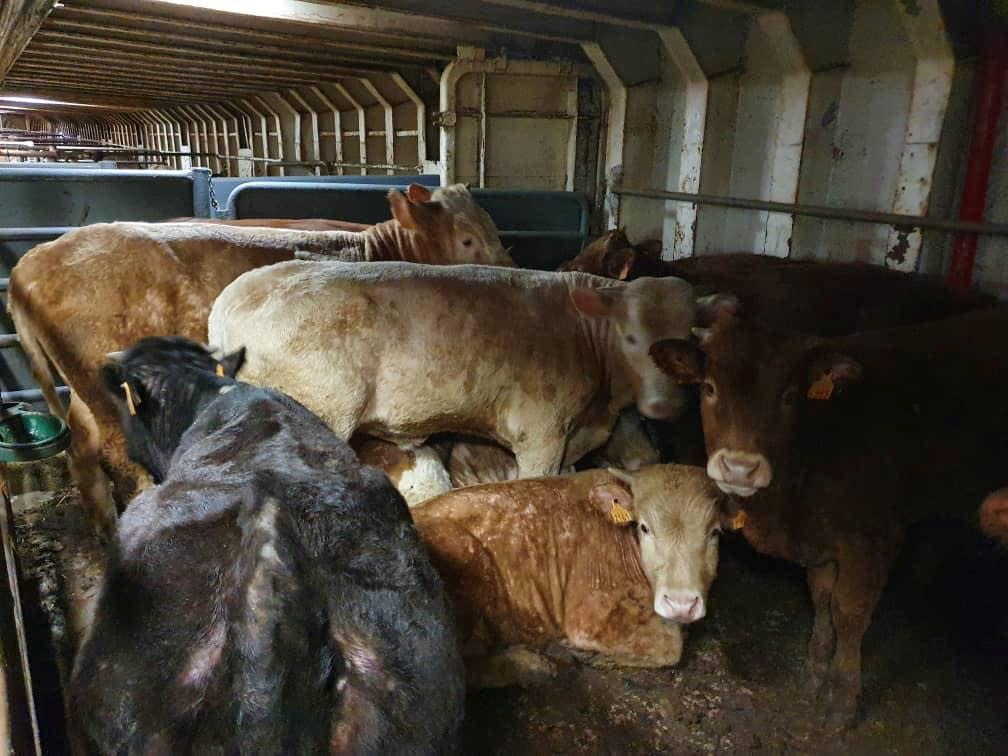More than 850 cattle on ship face slaughter amid bluetongue fears

More than 850 cows that have spent months aboard a ship have suffered “hellish” conditions and should be euthanised, according to a confidential Spanish government report.
The Karim Allah ship has been wandering through the Mediterranean for over two months and finally docked at the Spanish port of Cartagena on Thursday after struggling to find a buyer for its cattle.
A vets' report seen by the news agency Reuters said the animals had suffered from the lengthy journey, leaving many unwell and not fit for transport outside of the European Union, nor should they be allowed in the EU.
Euthanasia would be the best solution for their health and welfare, it said.
The cows have been refused entry into several countries over fears they had bovine bluetongue virus.
The insect-borne virus causes lameness and haemorrhaging among cattle but does not affect humans. The report did not say if the cattle had bluetongue disease.
The Agriculture Ministry did not immediately respond to a request for comment. It said on Friday that it would take appropriate decisions after analysing information from the inspection.
Miquel Masramon, a lawyer representing the ship owner, Talia Shipping Line, said the animals were privately tested for bluetongue but samples were impounded by authorities late on Thursday. The ship is registered in Lebanon, according to VesselFinder.
The vessel left Cartagena to deliver the cattle to Turkey but authorities there blocked the shipment and suspended live animal imports from Spain, fearing bluetongue infection.
That rejection turned the ship into an international pariah. Several countries refused it entry even to replenish animal feed and forcing the cows to go several days with just water.
The cows likely have severe health problems after their "hellish" crossing, said animal rights activist Silvia Barquero, director of the Igualdad Animal NGO.
"What has happened to the waste produced by all these animals for two months? We are sure they are in unacceptable sanitary conditions," Ms Barquero told Reuters.
The Agriculture Ministry's experts estimated there were 864 animals alive on board.
Twenty-two cows died at sea, with two corpses still aboard. The remains of the others that died were chopped up and thrown overboard during the journey, the report said.
The exporter, World Trade, said it is not responsible because it sold the animals, Mr Masramon said, leaving ownership unclear.
Read More
Polish farmers protest planned animal welfare law
Animal welfare campaigners target HRT firm
Cattle ‘twice as likely to contract TB from other cows as from badgers’, study shows for first time

